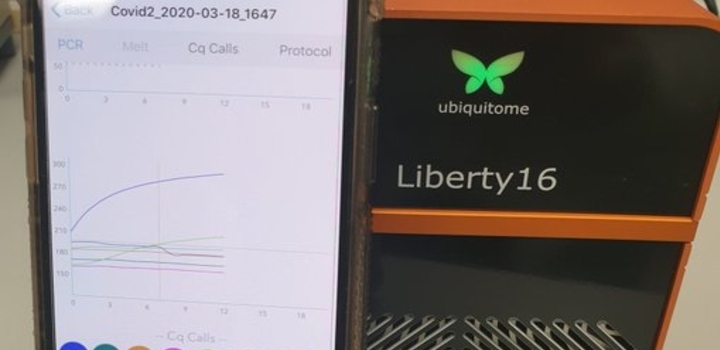Portable Covid-19 test could be rolled out in weeks
By: News Archive

Researchers at the University of East Anglia are pioneering a portable coronavirus kit which could be rolled out to test NHS staff in weeks.
The test would provide a result, displayed on a smartphone, in just 50 minutes after taking a throat swab.
Most current tests take 24-48 hours to provide results because they need to be sent to labs.
The new molecular test could be used to process 16 samples at a time – or up to 384 samples if using a lab-based detection machine.
The test kit aims to help self-isolating medical staff return to work as quickly as possible. And it will also ensure that those at work are not spreading the virus.
Lead researcher Dr Justin O'Grady, from UEA’s Norwich Medical School, began work on the kit earlier this month. He said: “The idea behind this is that we need to test NHS staff more quickly, so they can stay at work if they are well, or go home if they’re a risk to potentially very vulnerable patients.
"We want to move very quickly on this, and hope that it could be rolled out nationally to hospitals in around two weeks.”
The kit works by sequencing the genetic material (RNA) from a throat swab sample using a rapid three minute RNA extraction (Arcis Biotechnology) – in order to detect the presence of Covid-19.
“The test is simple to use so it could be carried out by a semi-skilled healthcare professional,” said Dr O’Grady.
“We hope it could provide additional capacity within the NHS because only those who are definitely ill with covid-19 would need to self-isolate. And it will help doctors get back to work as quickly as possible once they test negative.”
Related Articles

Air cleaners don’t stop you getting sick, research shows
Air filtration systems do not reduce the risk of picking up viral infections, according to new research from the University of East Anglia.
Read more
Wearable technology orthopaedic research shortlisted for national award
A project to support patients with their hip and knee replacement recovery using wearable technology has been shortlisted for a national innovation award.
Read more
Six UEA professors named in Highly Cited Researchers 2023 list
Six UEA professors have been named in the annual Highly Cited Researchers list for 2023, which celebrates some of the most influential researchers in the world today.
Read more